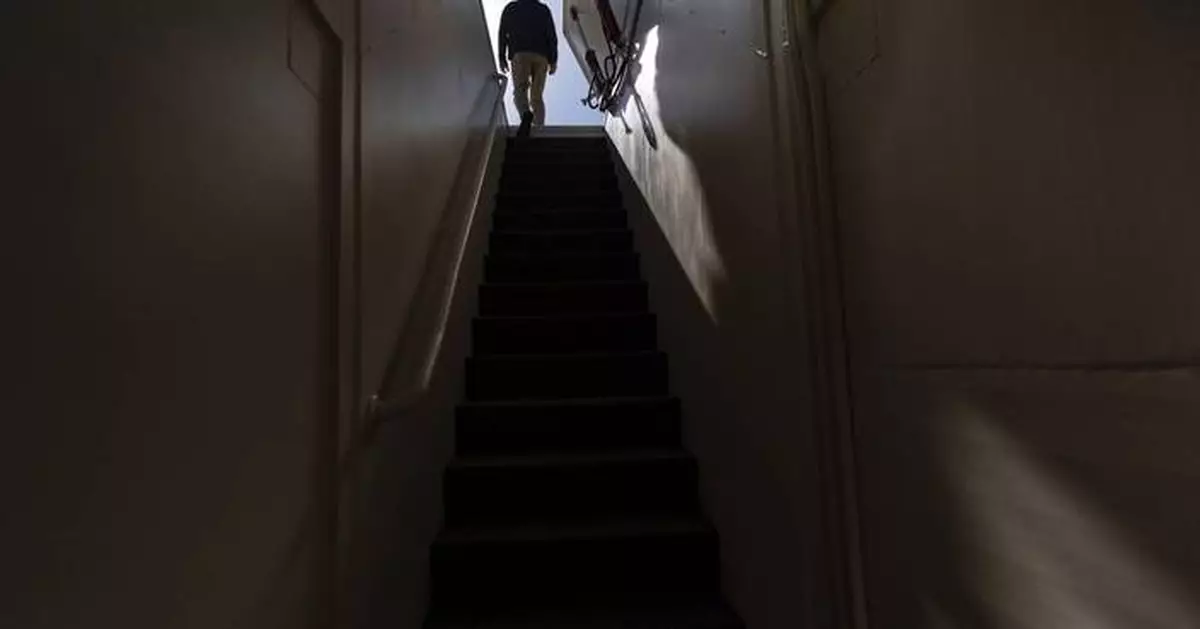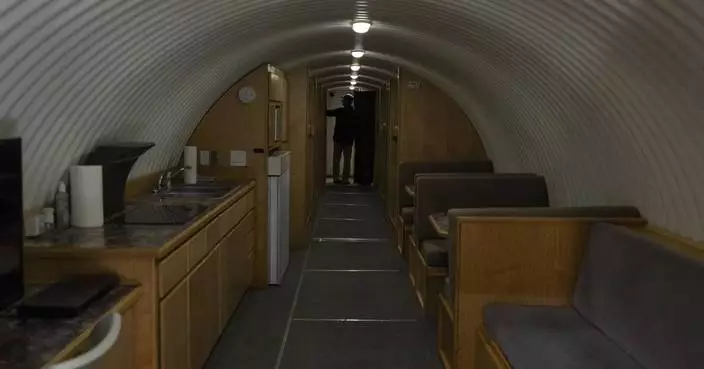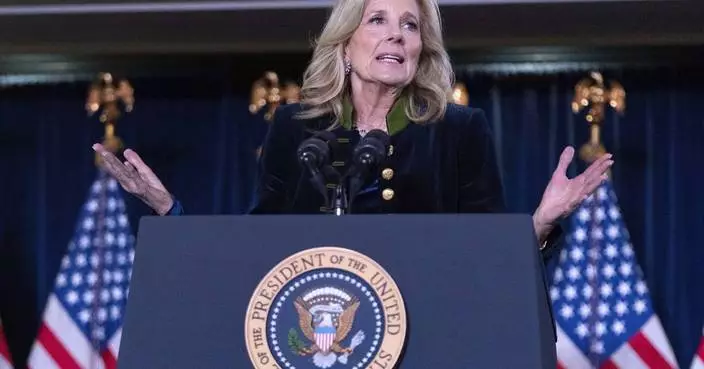Global security leaders are warning that nuclear threats are growing as weapons spending has surged around the world. At the same time, private bunker sales are on the rise globally. Critics warn these bunkers create a false perception that a nuclear war is survivable. They argue that people planning to live through an atomic blast aren’t focusing on the real and current dangers posed by nuclear threats, and the critical need to stop the proliferation of weapons of mass destruction.
Meanwhile, government disaster experts say bunkers aren’t necessary. The Federal Emergency Management Agency’s 100-page guidance on responding to a nuclear detonation focuses on having the public get inside and stay inside, ideally in a basement and away from outside walls for at least a day. Those existing spaces can provide protection from radioactive fallout, says FEMA.
Here are takeaways from the AP’s reporting on bunkers and the debate over the message building bunkers sends.
The market for U.S. bomb and fallout shelters is forecast to grow from $137 million last year to $175 million by 2030, according to a market research report from BlueWeave Consulting. The report says major growth factors include “the rising threat of nuclear or terrorist attacks or civil unrest.”
“People are uneasy and they want a safe place to put their family. And they have this attitude that it’s better to have it and not need it then to need it and not have it,” said Atlas Survival Shelters CEO Ron Hubbard. He says his bunker factory, in Sulphur Springs, Texas, is the world’s largest. Hubbard said COVID lockdowns, Russia’s invasion of Ukraine and the outbreak of the Israel-Hamas war have driven sales.
“Look, this fallout exposure is entirely preventable because it is something that happens after the detonation,” said Brooke Buddemeier a radiation safety specialist at Lawrence Livermore National Laboratory, where the U.S. government designs nuclear weapons. “There’s going to be a fairly obvious nuclear explosion event, a large cloud. So just getting inside, away from where those particles fall, can keep you and your family safe.”
After a deadly and deafening blast, a bright flash and a mushroom cloud, it will take about 15 minutes for the radioactive fallout to arrive for those a mile or more away from ground zero, said Michael Dillon, a scientist at Lawrence Livermore National Laboratory.
“It’s going to literally be sand falling on your head, and you’re going to want to get out of that situation. You want to go to your most robust building,” he said. In their models, they estimate people may need to stay inside for a day or two before evacuating.
Nonproliferation advocates bristle at the bunkers, shelters or any suggestion that a nuclear war is survivable.
“Bunkers are, in fact, not a tool to survive a nuclear war, but a tool to allow a population to psychologically endure the possibility of a nuclear war,” said Alicia Sanders-Zakre at the International Campaign to Abolish Nuclear Weapons.
Sanders-Zakre called radiation the “uniquely horrific aspect of nuclear weapons,” and noted that even surviving the fallout doesn’t prevent long-lasting, intergenerational health crises. “Ultimately, the only solution to protect populations from nuclear war is to eliminate nuclear weapons.”
Massachusetts Congressman James McGovern year after year introduces legislation pushing for nonproliferation.
“If we ever get to a point where there’s all out nuclear war, underground bunkers aren’t going to protect people,” he said. “Instead, we ought to be investing our resources and our energy trying to talk about a nuclear weapons freeze, initially.”
Next, he said, “we should work for the day when we get rid of all nuclear weapons.”
—-
The Associated Press receives support for nuclear security coverage from the Carnegie Corporation of New York and Outrider Foundation. The AP is solely responsible for all content.
—-
Additional AP coverage of the nuclear landscape: https://apnews.com/projects/the-new-nuclear-landscape/
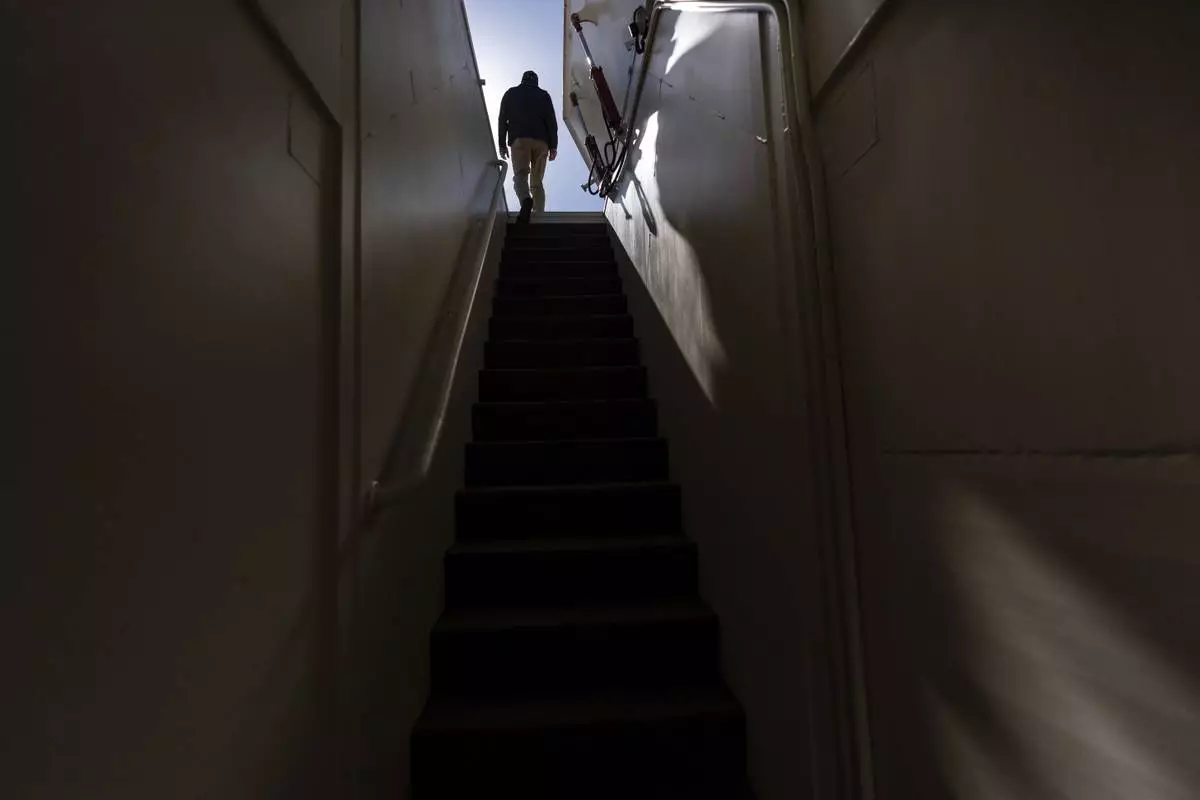
The owner, who asked not to be identified because of concerns about his privacy, walks up the steps of his underground shelter in an undisclosed Southern California city, on Dec. 16, 2024. (AP Photo/Jae C. Hong)
WASHINGTON (AP) — The unemployment rate is healthy and the stock market is up, but Democrats are feeling more pessimistic about the U.S. economy after Donald Trump's election victory, according to a new poll.
Republicans, meanwhile, are still dour about the current state of the economy but hopeful that growth will be stronger next year when Trump returns to the White House as president.
The latest survey from The Associated Press-NORC Center for Public Affairs Research suggests that some Americans are evaluating the economy more by who holds political power than on what the underlying trends suggest. This was a persistent challenge for President Joe Biden that Trump appears to be inheriting — and it raises the possibility that Trump, too, might struggle to translate his economic policies into political wins.
About 7 in 10 U.S. adults rate the country’s economic state as very or somewhat poor, up slightly from about 6 in 10 in October. Self-identified Democrats are primarily driving the recent negativity. About 6 in 10 Democrats described the U.S. economy as “good” in October. With Republicans on the verge of controlling the executive and legislative branches, only about half of Democrats say that now.
“Next year, if Trump gets his tariffs, prices are going to go up and things are going to be more costly,” said Karen Claussen, 77, who lives in suburban Columbus, Ohio, and voted for Democrat Kamala Harris in November's election. “I don’t see any hope right now. No, I’m very worried."
The long-standing pessimism about the economy reveals a disconnect between the traditional measures used to judge performance and how people are feeling.
The unemployment rate is a healthy 4.2% as hiring continues to be solid. Inflation has fallen from its 2022 peak, yet progress has stalled in recent months. The stock market was already up under Biden and has further increased since the election in anticipation of Trump’s promised tax cuts and efforts to curb regulations.
Perhaps because the poll was conducted with Biden still in office, just 16% of Republicans say the nation’s economy is good right now. But they see positive change on the horizon: About 7 in 10 Republicans say 2025 will be a better year than 2024 for the U.S. economy.
In the November election, AP VoteCast indicated that voters favored Trump in large part because of dissatisfaction over inflation, a global phenomenon coming out of the pandemic that raised prices for groceries, gasoline, cars and housing.
The new AP-NORC poll shows about one-third of Americans say they are “extremely” or “very” concerned about their ability to afford groceries over the next few months. About 3 in 10 are highly worried about being able to afford holiday gifts, gas or electricity.
“Right now, it’s Christmas time, and we’re struggling to make sure our son has Christmas this year,” said Jeremie Spratley, 39, from Westland, Michigan.
Spratley is on disability, and he said his family is getting less in food aid at a time when affordability has become a problem. He voted for Trump even though he thinks the former president cares more about the wealthy than about people like him.
"I know that he’s not looking out for the poor people like me, but even if it trickles down, that will be a benefit,” Spratley said.
People in households earning $50,000 or less are also more likely to be concerned about affording their basic needs and year-end expenses, compared with those with higher incomes. About half of those with a household income below $50,000 are worried about being able to pay for groceries, and about 4 in 10 say the same about buying gas, electricity or holiday presents.
Among Republicans who already hold a negative view of the economy, about 7 in 10 expect next year to be better. Only about 4 in 10 independents who see the economy as weak say it will improve. And about 1 in 10 Democrats who currently think the economy is weak say it will advance next year.
It’s common for some Americans to shift their views about the economy after a new president takes office.
For example, Democrats’ view of the economy dramatically improved between December 2020 and February 2021, after Biden took office. Only 15% of Democrats at the end of 2020 rated the economy as “good,” but that jumped to 41% by February. Over the same period, Republicans’ views dropped from about 7 in 10 saying the economy was in good shape to 35%. The topline view stayed the same, and independents did not shift their views significantly.
Beyond a series of bold and brash statements, it’s unclear which policies Trump would prioritize in hopes of helping growth.
He has threatened universal tariffs against partners such as Canada and Mexico, as well as geopolitical rivals such as China, unless those nations conduct their policies on trade, immigration and other matters to his liking. He would also like to renew and expand parts of his 2017 tax cuts that are set to expire, but that could incur a higher level of debt that could hinder growth.
But for voters like Benjamin Lebert, 41, what matters is that Trump marks a change from the current administration. The resident of Roanoke, Virginia, voted this year for Trump, after not doing so previously in 2016 or 2020.
“With Trump in office, maybe new things will happen to America that weren't happening under Joe Biden,” Lebert said.
The poll of 1,251 adults was conducted Dec. 5-9, 2024, using a sample drawn from NORC’s probability-based AmeriSpeak Panel, which is designed to be representative of the U.S. population. The margin of sampling error for adults overall is plus or minus 3.7 percentage points

President Joe Biden speaks about his administrations economic playbook and the future of the American economy at the Brookings Institution in Washington, Tuesday, Dec. 10, 2024. (AP Photo/Susan Walsh)
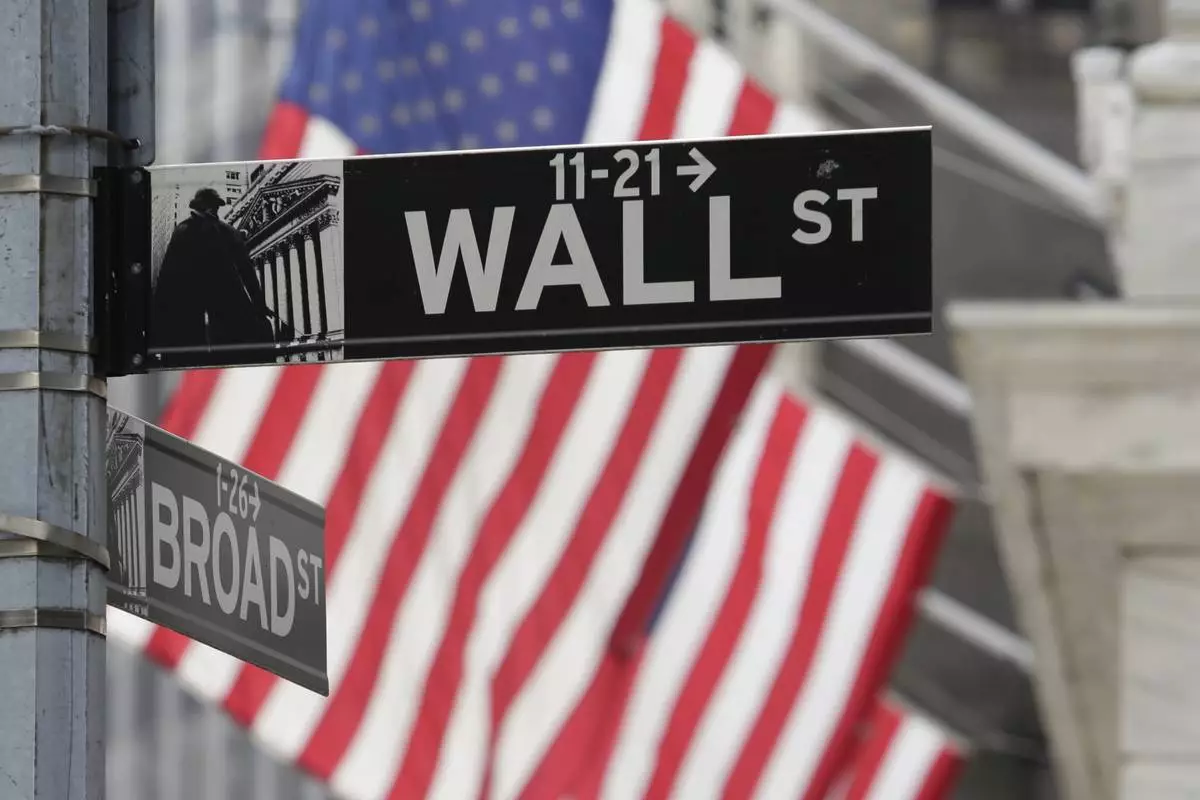
FILE - Signs marking the intersection of Broad and Walls streets appear near the New York Stock Exchange, Oct. 1, 2024, in New York. (AP Photo/Peter Morgan, File)
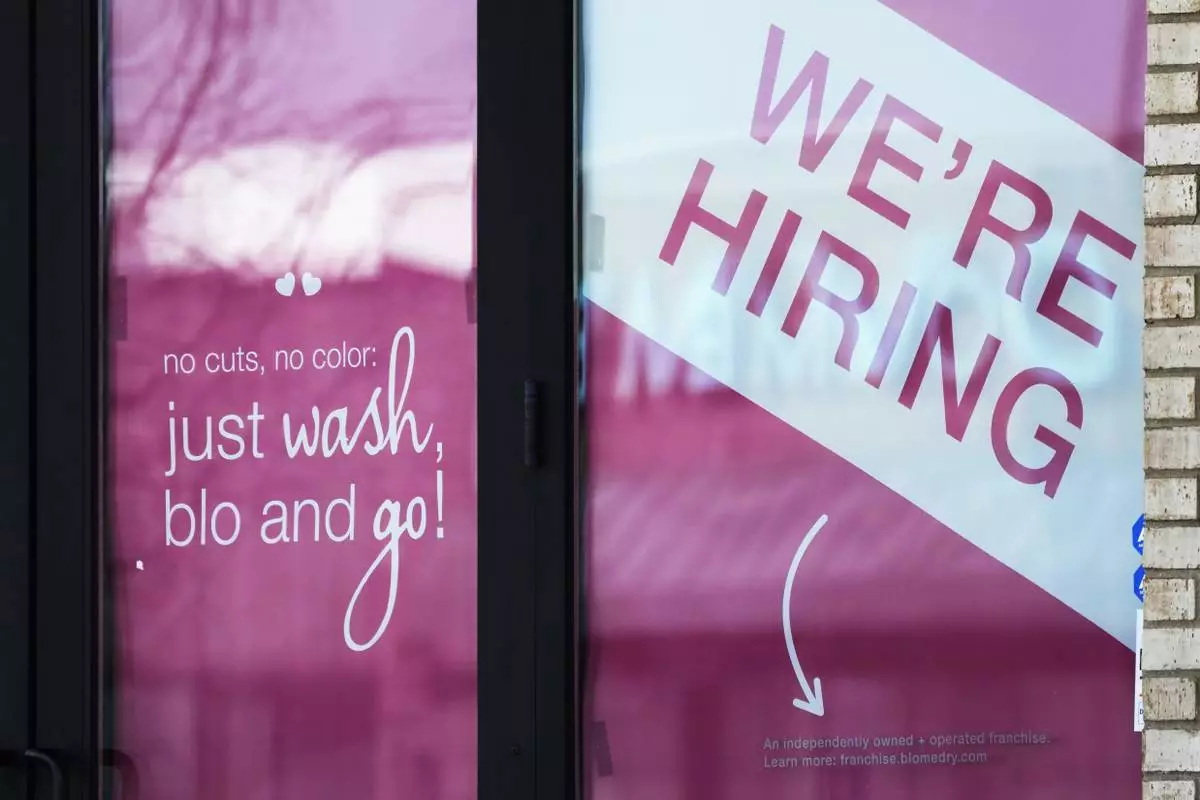
FILE - A hiring sign is displayed at a hair salon in Vernon Hills, Ill., March 28, 2023. (AP Photo/Nam Y. Huh, File)



